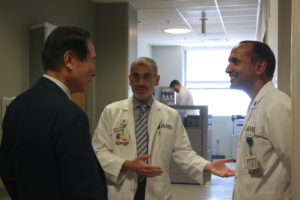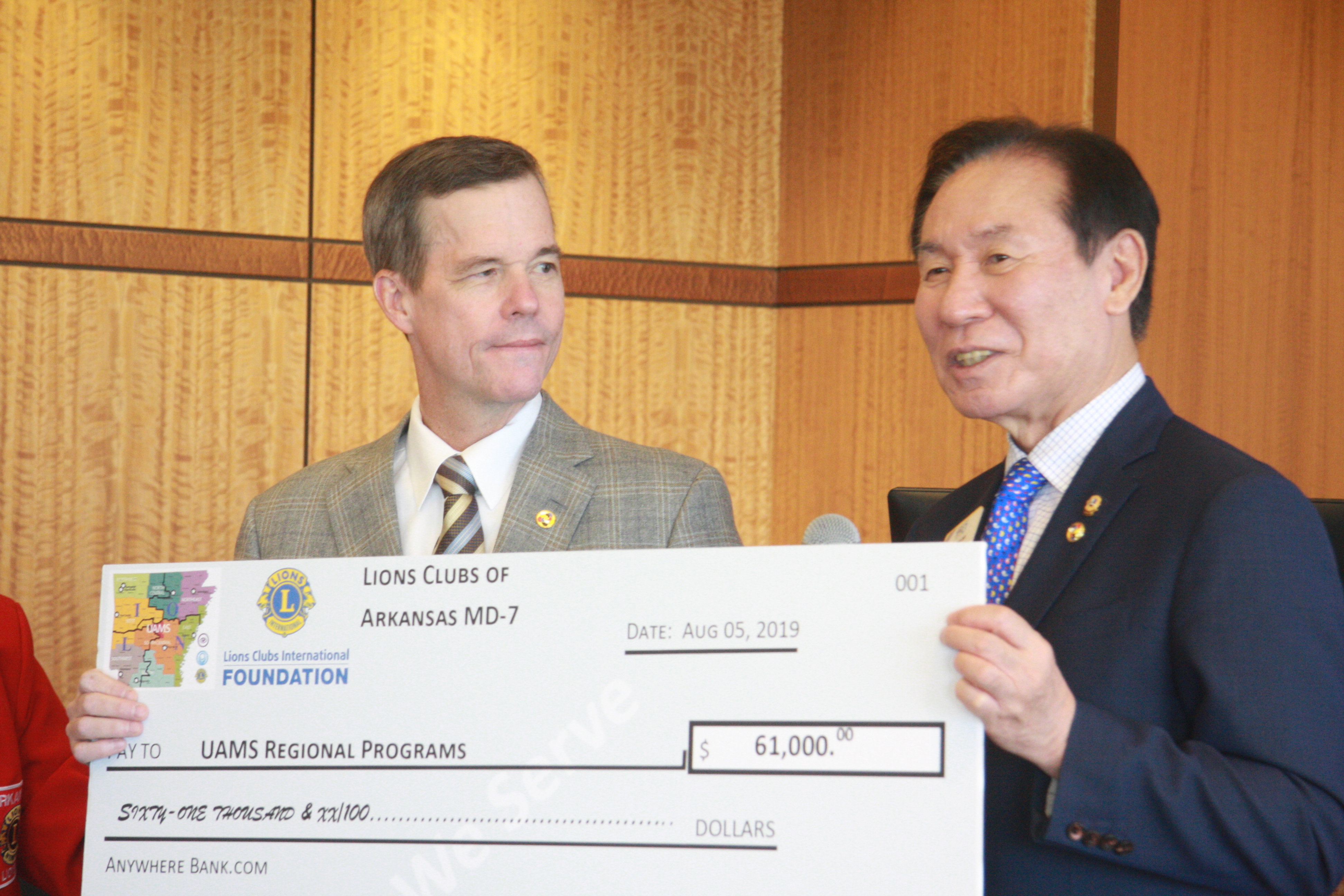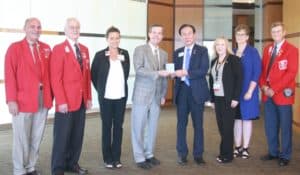Lions International Foundation President Visits UAMS from Korea
| The president of the Lions Club International Foundation visited UAMS on Aug. 5 to present an award of $61,000 to UAMS Regional Campuses, which is working with the UAMS Harvey & Bernice Jones Eye Institute to provide vision screenings to all Arkansans with diabetes.
Jung-Yul Choi, of Busan, Republic of Korea, was welcomed to campus by UAMS Chancellor Cam Patterson, M.D., MBA.
“The more we can find different groups working together, people of different backgrounds with different experiences, the more we are going to be able to serve the people of Arkansas to fulfill our mission. This collaboration with the Lions Club of Arkansas and the International Lions Club Foundation, the Arkansas Eye Bank and UAMS, is the perfect example of that,” said Patterson.
The funding from the Lions Club, combined with funding from the Chancellor’s Circle, enabled the purchase of nine special cameras used to take a picture of the back of the eye (the retina) without dilating the pupils or performing a full eye exam. The cameras are being installed at UAMS family medicine clinics around the state.
The pictures they take are sent back to the Jones Eye Institute, where ophthalmologists can quickly determine whether there is damage to a patient’s retina from diabetes, along with other threats to vision such as tumors or glaucoma. If so, they can refer them for further treatment.
“Access to care is crucial, particularly for people who live in rural communities. It’s not always possible to come into Little Rock for routine care. Where you live should not determine the kind of health care you receive, and we’re committed to finding solutions for patients where they live,” said Patterson, noting that 29 of Arkansas’ 75 counties have no hospital.
Choi, along with representatives of the local Lions Club, toured the Arkansas Eye Bank and Jones Eye Institute, meeting with Sami Uwaydat, M.D., a retina specialist and interim chair of the Department of Ophthalmology.

Sami Uwaydat leads Choi on a tour of his clinic at the Jones Eye Institute and introduces him to other physicians.
“Once every two weeks we have a patient walk into our clinic blind in both eyes from diabetes. That just should not happen,” Uwaydat said. “Being at the forefront of eye care in Arkansas, we have to take this problem head on.”
Incorporating the camera screening into routine diabetes checkups will help catch signs of damage early before patients even notice symptoms. Early diagnosis can lead to successful treatment. However, once vision loss has started, it is impossible to reverse.
“Having retinal screening services that can be monitored through UAMS’ nationally and internationally recognized digital health program is a way to ensure that every person in the state living with diabetes has access to early diagnosis and intervention to avoid drastic, devastating eye problems,” Patterson said.

